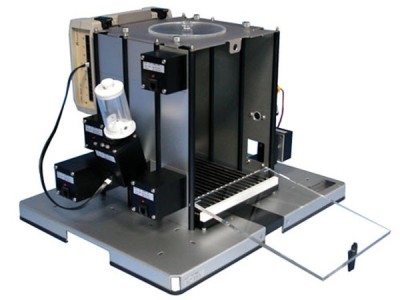Authors
H. Houchi, W. Persyn, R. Legastelois and M. Naassila
Lab
Groupe de Recherche sur l'Alcool & les Pharmacodépendances, INSERM ERi 24, Université de Picardie Jules Verne, France
Journal
Addiction Biology
Abstract
There is emerging evidence that the adenosinergic system might be involved in drug addiction and alcohol dependence. We have already demonstrated the involvement of A2A receptors (A2AR) in ethanol-related behaviours in mice. Here, we investigated whether the A2AR agonist CGS 21680 can reduce ethanol operant self-administration in both non-dependent and ethanol-dependent Wistar rats. To rule out a potential involvement of the A1R in the effects of CGS 21680, we also tested its effectiveness to reduce ethanol operant self-administration in both heterozygous and homozygous A1R knockout mice. Our results demonstrated that CGS 21680 (0.065, 0.095 and 0.125 mg/kg, i.p.) had a bimodal effect on 10% ethanol operant self-administration in non-dependent rats. The intermediate dose was also effective in reducing 2% sucrose self-administration. Interestingly, the intermediate dose reduced 10% ethanol self-administration in dependent animals more effectively (75% decrease) when compared with non-dependent animals (57% decrease). These results suggest that the A2AR are involved in CGS 21680 effects since the reduction of ethanol self-administration was not dependent upon the presence of A1R in mice. In conclusion, our findings demonstrated the effectiveness of the A2AR agonist CGS 21680 in a preclinical model of alcohol addiction and suggested that the adenosinergic pathway is a promising target to treat alcohol addiction.
Keywords/Topics
Miscellaneous research domains
Source :

 Pain - Thermal Allodynia / Hyperalgesia
Pain - Thermal Allodynia / Hyperalgesia Pain - Spontaneous Pain - Postural Deficit
Pain - Spontaneous Pain - Postural Deficit Pain - Mechanical Allodynia / Hyperalgesia
Pain - Mechanical Allodynia / Hyperalgesia Learning/Memory - Attention - Addiction
Learning/Memory - Attention - Addiction Physiology & Respiratory Research
Physiology & Respiratory Research











![Dynamic Weight Bearing 2.0 – Postural Module [Add-on]](https://bioseb.com/733-home_default/dynamic-weight-bearing-20-add-on-postural-module.jpg)
























 Pain
Pain Central Nervous System (CNS)
Central Nervous System (CNS) Neurodegeneration
Neurodegeneration Sensory system
Sensory system Motor control
Motor control Mood Disorders
Mood Disorders Other disorders
Other disorders Muscular system
Muscular system Joints
Joints Metabolism
Metabolism Cross-disciplinary subjects
Cross-disciplinary subjects CONFERENCES & MEETINGS
CONFERENCES & MEETINGS 